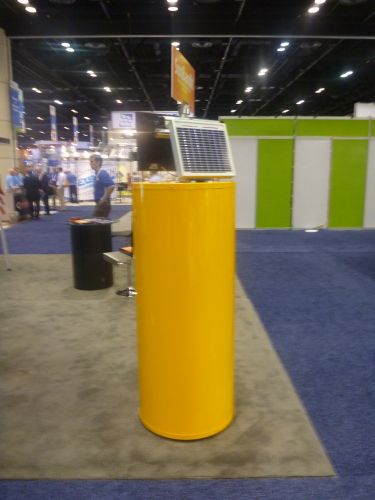Why you should care about Solar Power International
 In Orlando, Florida this week is the annual Solar Power International conference and trade show. If you aren't in the business of selling or buying solar equipment why should you care? Like most people who read CleanEnergyAuthority.com you are probably someone who is interested in putting panels on your roof or maybe are just very interested and supportive of the idea of using the sun to power our lives.
In Orlando, Florida this week is the annual Solar Power International conference and trade show. If you aren't in the business of selling or buying solar equipment why should you care? Like most people who read CleanEnergyAuthority.com you are probably someone who is interested in putting panels on your roof or maybe are just very interested and supportive of the idea of using the sun to power our lives.
This is no small gathering under the Florida sun as there are thousands of people in the trade form all over the world who make this annual trek to see what's great and new in hardware, software, financing and everything else you could possible imagine related to solar energy. And when we say from around the world that means a large number of participants from almost every continent in the world. the US market is big and hot which means that the Germans, Chinese, Japanese to name a few want to show their wares. There is also a fair amount of idea sharing in meetings, briefings, talks, speeches (President Clinton tonight) about policies, politics and of course how best to put a panel on your roof.
For the average person interested in solar what all this means is pretty simple; the solar industry is very dynamic and is getting more so every year and that is a good thing. Joe "rooftop owner" doesn't really care about the latest type of racking systems or how the local solar farm is going to get it's poles in the ground but does care about if any of these improvements or new technologies will affect his electric bill and the air he breathes. Advances one can see on the conference floor will make the average rooftop installation cheaper, faster, more attractive, easier to monitor and produce more energy per square foot. Advances will make the solar farm that their local utility decides to construct less expensive and more productive leading to a hopefully smaller electric bill and/or less energy coming in the front door produced from a dirtier source like a coal plant.
There are a lot of divergent people brought together by this conference with people from utilities, lobbyists, advocates, major US corporations and of course solar trade people to discuss what works and what doesn't for furthering various goals that lead to more solar for us all. One of the biggest obstacles to the spread of use of the solar energy in the US is state laws. Some states have supportive government and many states have stonewalled and crushed attempts to promote solar through various financing mechanisms, rebates and incentives. People from all over the country come together here to share what they have done to overcome these obstacles and make more states pro-solar.
Florida is a case-in-point as the very sunny host state that should be booming for solar trails less sunny places like New Jersey precisely because of this lack of support from local government. We sat in yesterday for an excellent breakfast meeting where folks from Georgia shared their success in getting Tea Party supporters to pressure their legislature to understand that allowing new forms of financing for solar was something that government needs to get out of the way of. Appealing to a libertarian point-of-view was a new way to get people from the political far right and Republicans on board, something that was not lost on the very frustrated Florida solar advocates in the audience. California and New Jersey right now are creating thousands of jobs and installing 100's of megawatts of clean renewable energy because of these new financing options. Make those options available and dozens of companies will enter your market and then watch things explode. States like Vermont have made permitting quick and simple, make those things happen in your state and the cost of solar will drop for everyone.
 Solar Power International 2012 wraps up at the end of this week but not until there are a lot more speeches, panels, press releases and parties. President Clinton will have some important things to say that will make the national media pay attention briefly. Next week though everyone will go home and all these new products will start getting shipped and utilized and all these new ideas and strategies will hopefully begin to start being implemented. What is very apparent from this show is that the solar energy industry is alive and well and is constantly pushing the boundaries of technology. These developments whether it's new uses of robots or a better wire crimper all in the end will mean going solar for either your home or your local utility is more likely to happen now than it was last week.
Solar Power International 2012 wraps up at the end of this week but not until there are a lot more speeches, panels, press releases and parties. President Clinton will have some important things to say that will make the national media pay attention briefly. Next week though everyone will go home and all these new products will start getting shipped and utilized and all these new ideas and strategies will hopefully begin to start being implemented. What is very apparent from this show is that the solar energy industry is alive and well and is constantly pushing the boundaries of technology. These developments whether it's new uses of robots or a better wire crimper all in the end will mean going solar for either your home or your local utility is more likely to happen now than it was last week.



